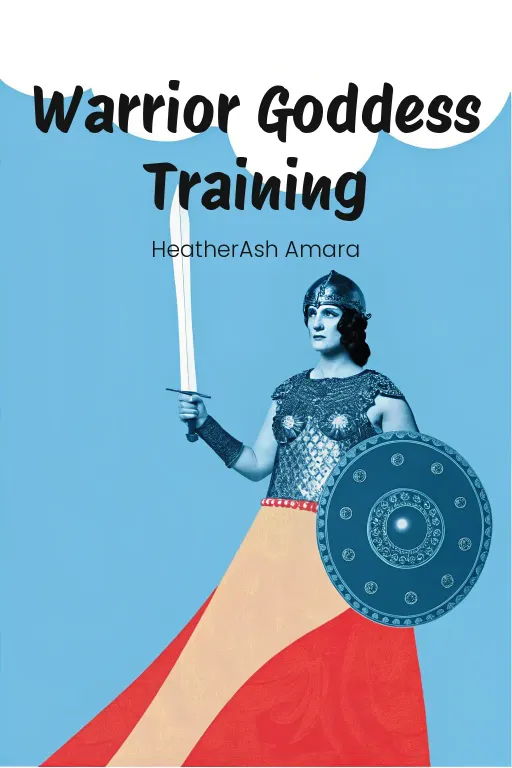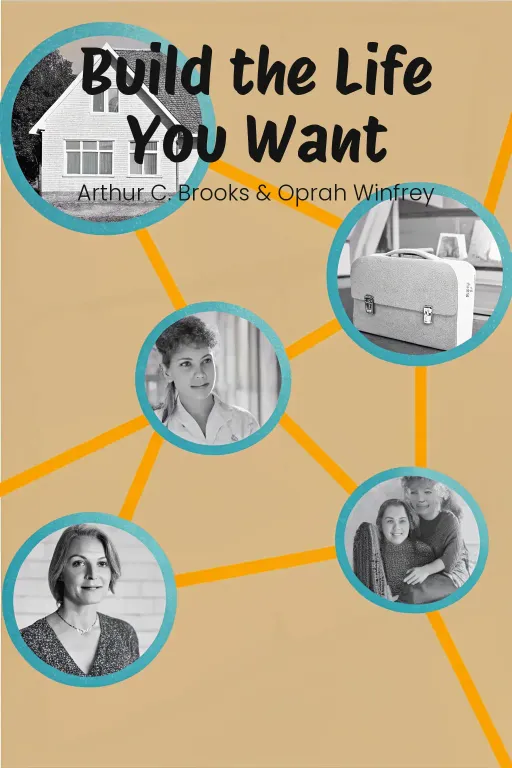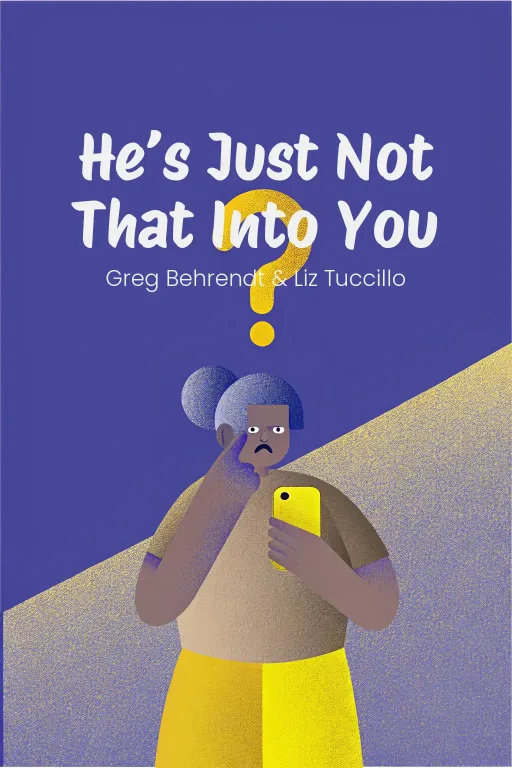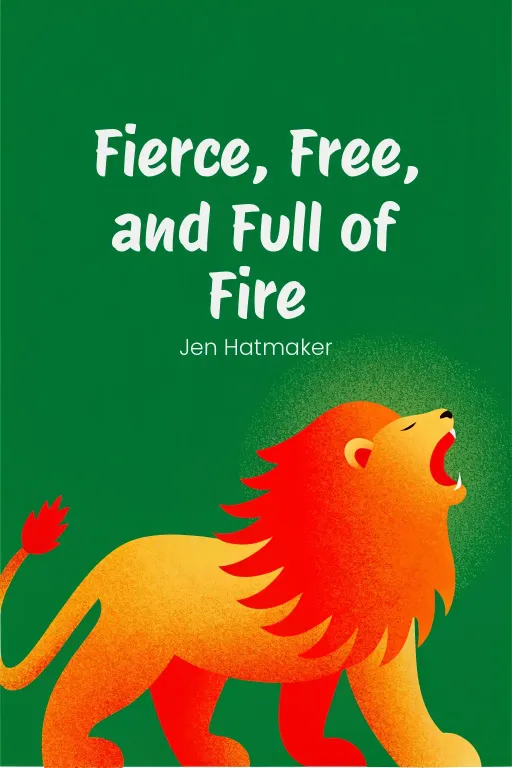
Red Flags: Decode His Mixed Signals FAST!
Podcast by The Mindful Minute with Autumn and Rachel
The No-Excuses Truth to Understanding Guys
Introduction
Part 1
Autumn: Hey everyone, welcome! Whether you're trying to figure out modern dating or just understand why someone's acting so confusing, we're thrilled you're here. Today's episode, well, it might just change everything. Rachel: Exactly. We're tackling the, shall we say, “brutally” honest truths behind that age-old question: Is he just not that into you? Or... are you making excuses for behavior that's just plain awful? My bet's on a little of both, honestly. Autumn: Couldn't agree more, Rachel. We're diving into He's Just Not That Into You, a really direct guide that gets rid of all the noise we tell ourselves when someone's interest, or lack thereof, gets confusing. Greg Behrendt and Liz Tuccillo, they don't hold back. Their point? If a guy’s really into you, you'll know. His actions will make it crystal clear. Rachel: Right, and if those actions are whispering, “Ehh, maybe someday,” guess what? That's probably your cue to move on. But Autumn, what’s great about this book is that it doesn't just point out the obvious warning signs—although, yeah, there are a “ton” of those—it's also about letting go of the excuses we tell ourselves and really rediscovering our value. Autumn: Totally. And in today's podcast, we're breaking it all down. First off, we're highlighting the unmistakable red flags that can save you from wasting, you know, months—or even years—on deciphering mixed signals. And second, we’ll decode the stories we tell ourselves to justify the unjustifiable. Rachel: Oh, I'm guilty of that! And let's not forget the big finale: how to rebuild your self-assurance and set standards that actually reflect your worth. It's like finally cleaning a grimy mirror and seeing yourself clearly for the first time. Autumn: That's a such a perfect way to put it, Rachel. So, grab your emotional toolbox, because this is going to be both super insightful and liberating as we uncover what it really means when he’s just not that into you. Rachel: Alright, let's jump in.
Key Signs He’s Not That Into You
Part 2
Autumn: Alright, Rachel, let's dive in. Sign number one, a big one, is simply this: he's not asking you out. Seems obvious, right? But it’s amazing how easily we explain away the silence. Rachel: Oh, absolutely. It's the land of "He's probably just shy," or the old faithful, "He's swamped at work right now." Which really translates to, "I’m making excuses because the truth is painful." Autumn: Exactly! Behrendt's point is so direct: if someone is truly interested, they'll make the effort. Attraction leads to action. It's not rocket science, but, wow, do we twist ourselves into knots trying to bend that rule. Rachel: Right. So, let's be brutally honest: If he's not texting, calling, and actively planning a second date after the first, are we seriously still dissecting whether he's into you? Nobody needs a Ph.D. to schedule a dinner. Autumn: Exactly. The book nails it with this story about a woman endlessly wondering, "Why haven't I heard from him?" She builds these elaborate scenarios in her head: He's intimidated, he thinks I'm too good for him, maybe Mercury is in retrograde and he's rethinking his life. Rachel: Or—Autumn, hear me out—maybe he just doesn't care enough to make the effort. Harsh, but liberating, wouldn't you say? Once you ditch those "maybes," you can see his behavior for what it is. No texts, no calls? He’s prioritizing literally anything else. Autumn: Precisely. Inaction is, in itself, an action. It screams, "I'm not invested enough to put in the effort." Forget shyness, forget confusion - it's disinterest masquerading as silence. Rachel: Exactly, is he really that shy? Think about it, as the book so humorously points out, he's got time to curate his Instagram stories or flex for the gym selfie. Surely, he could manage a "coffee sometime?" text. Autumn: And that's the beauty of this realization! It takes the pressure off you. It's not that you're too much, too little, or anything else. His lack of interest isn't a judgement on your worth. It’s a sign to shift your energy to someone who will show up. Rachel: Okay, so let's dig a little deeper. It's not just about waiting for that first date, is it? What about when the initial date happens, but then he turns into the Houdini of texting? "He's Not Calling You" - let's get into that one. Autumn: This one hits hard because it's where so many get lost in doubt. The book talks about a woman, Gina, who has this amazing connection with a guy... at first. He's attentive, they chat constantly, everything feels perfect. Then, boom, the communication dwindles. Rachel: Yep, classic disappearing act. And this is where the excuse factory really kicks into gear, isn't it? Because admitting the person you're into isn't that invested? It's a tough pill to swallow. Autumn: Exactly. Gina falls into that exact trap. She bends over backwards to justify it: overloaded at work, crazy schedule, fiercely independent! But, as the book emphasizes, life doesn't prevent you from reaching out to someone you value. Rachel: Bingo. Ironic, isn't it? These excuses become rom-com plotlines. Suddenly, he's this enigmatic, pressured genius juggling world-saving with writing a novel. Autumn, come on—if someone wants you in their life, they don't just vanish. Autumn: Exactly! They find ways to maintain that connection. Consistent effort equals consistent interest. Recognizing the difference between genuine obstacles and blatant neglect is vital to understanding the relationship's potential. Rachel: And here’s a dose of truth for the listeners: the issue isn't really work. The real question is, why are you settling for being an afterthought? If he can't even manage basic communication, it's not simply "how he is." It's about how much he values you—or doesn't. Autumn: Exactly, which leads to the core message: don’t wait for someone to value you when they're actively showing you, through their lack of effort, how little they're willing to invest. Rachel: Alright, Autumn, we're on fire. Let's ramp it up a notch. Next sign. Let's delve into that awkward no-man's land where he's seen you, hung out with you, maybe even “Netflix and chilled” with you…but is adamantly opposed to actually dating you.
Common Excuses Women Make
Part 3
Autumn: Exactly, Rachel. That's a perfect segue into one of the most frustrating excuses we hear: "It's better than nothing." Women, especially, get caught thinking that way, settling for minimal attention because they're scared of ending up with no one. Rachel: Oh yeah, the “scraps are a meal” mindset. It’s like ordering a real five-course meal and only getting a breadstick. You're telling yourself, "Well, at least I’m not starving." Spoiler alert, Autumn: you ARE starving! Emotionally, anyway. Autumn: I love that analogy, Rachel, it nails it. It's what happens when you put up with someone being inconsistent. Take Lydia, for instance. Her story in the book is so common, it's almost heartbreaking. She was seeing a guy, but only every couple of weeks. Instead of saying what she needed, she went with, "Well, at least he makes “some” time for me.” Rachel: “Some” time? Seeing someone twice a month? Autumn, by that standard, my flossing routine is practically a full-time commitment! It's unbelievable how that kind of thinking can push people to lower their standards completely. Autumn: Absolutely. Greg Behrendt argues that the "better than nothing" idea is a trap. Lydia thought these occasional dates meant something real, but it just left her feeling unimportant. That disconnect just chipped away at her self-esteem over time. Rachel: What gets to me about the "better than nothing" trap is how well it hides. On the surface, you hear things like, "Oh, he's busy," or "It's just a casual thing." But underneath, it’s often fear – fear of being alone, fear of rejection, or even fear that this is the best they can do. Autumn: That's it: fear disguised as acceptance. By normalizing "scraps," you end up believing that's your worth. The book does a good job of making it clear that it's not necessarily about making the partner the villain. It’s about understanding the role you play when you choose to settle. Rachel: So when Behrendt writes, "Receiving scraps should not feel like a privilege," he's telling Lydia – and everyone like her – to take control. If someone's really into you, you won't have to turn crumbs into a feast. Actions will be consistent, not just occasional breadcrumbs. Autumn: Such an important point. The fear that makes people cling to these lukewarm relationships is usually tied to societal messages, right? Women are especially conditioned to think being single is a kind of failure. Even something dissatisfying feels like a win, comparatively. Rachel: Which brings us to another favorite excuse – the old “Waiting Room.” This time, you're not settling. Instead, you're "waiting" for him to get over his past relationship or his work thing, or whatever baggage he's hauling around, right? Autumn: Exactly, Rachel, what the book calls "misinterpreting emotional unavailability." There’s this tendency to think someone’s inability to commit is somehow noble. Like, "He just needs to heal from his ex," or "He's working on himself, and I'm here to support him." Rachel: Hang on – so he's emotionally unavailable, you're stuck on pause, and you've cast yourself as his emotional support coach? Sounds exhausting. Autumn: It is. There’s a woman in the book who did just that. Her boyfriend had trouble connecting because of a past breakup. Instead of seeing that as a red flag, she thought her patience would lead to connection. But it became super one-sided. She was putting in all this energy, and he stayed distant. Rachel: You know, it's frustrating how romantically we view "fixing" people. It's like saying, "Sure, he’s a fixer-upper, but I’ll knock down a few emotional walls, and...dream house!" But it's not how it works. Emotional unavailability is not a phase you wait out. It's a fundamental mismatch. Autumn: Exactly. Greg emphasizes that emotional hesitancy isn’t an invitation to try harder. It’s a flashing sign that says, "This isn't your job." The test is: Is your effort actually met in return? Or are you draining yourself and just waiting? Rachel: What about when this leads to that broken reward system? Like, "If I'm loyal long enough, he'll see what a catch I am." But emotional investment doesn't work like that! People who want you get off the bench and show you they’re ready. Autumn: Right! And while we're at it, let's talk about one more: the "healing mentality." This kicks it up a notch, because you're not just waiting. You're actively trying to fix someone else’s brokenness. Rachel: Ugh. “Love conquers all," right? No, Autumn, it doesn’t. It definitely can’t conquer someone avoiding their own grief—and shouldn’t have to. Autumn: Totally. The book uses Liz’s friend’s story as a key example. She was dating a man who’d recently lost his wife. She thought her love would help him heal, and this would create a stronger bond. But his grief just put up walls she couldn’t climb. Rachel: That’s because, as nice as "helping them heal" sounds, it’s a shaky base for a relationship. You're not their therapist. Love should add to your life, not drain you trying to repair someone. Autumn: Right! Emotional labor like that hurts your self-worth over time, because it says love is sacrifice. But love should never feel like you need to earn it. Rachel: So, Autumn, if someone's listening and thinking, "Okay, I do that," how do they break the cycle? What does the book suggest? Autumn: The first step is honest self-reflection. For Lydia, that would have been journaling about how her needs weren’t being met. Or the woman waiting for her partner, reflecting on how the lack of give-and-take was affecting her joy. Rachel: That self-awareness is where the magic happens. Once you name the excuses, you take away all their power. You're not distracted by rationalizations. You're focused on facts and your real emotional wants. Autumn: Exactly. Tools like journaling, talking to close friends or therapists, and creating a list of boundaries are so important. Because once you know your worth, anything less is instantly unacceptable. Rachel: And unacceptable is where we're drawing the line, here!
Building Self-Worth and Moving On
Part 4
Autumn: So, recognizing these excuses is key, right? It leads us to really look at toxic behaviors and, most importantly, prioritize our own self-respect. Because once we stop making excuses for bad behavior, the “real” work begins—building that self-worth and moving on from relationships that just don’t serve us. Rachel: Exactly, that's where it gets real. I mean, it’s one thing to say you deserve better, but living it? That's another story. So, how do we actually shift from just seeing those red flags to actively prioritizing ourselves and our self-respect? Autumn: Right, great question. It all starts with setting personal standards, like your non-negotiables. These are the essential qualities and values you need in a partner. Think of them as guidelines to protect your emotional well-being and making sure future relationships are built on respect and understanding. Rachel: Sure, setting standards sounds great. But honestly, it's tough to stick to them, especially when emotions are high. People start negotiating with themselves, like, "Well, maybe consistency isn’t that big of a deal…" Or they’ll say, "I can work with this," even when the red flags are waving like crazy. Autumn: Precisely! That's where self-awareness comes in. The book suggests really taking stock of past experiences to see those recurring patterns. Like, why do you keep ending up with emotionally unavailable people? Or why do you always excuse someone's lack of effort? These patterns usually indicate that we're not valuing ourselves enough. Rachel: Right, so it's like figuring out why the GPS in your love life keeps sending you straight into dead ends. So, what's the first step for someone to actually dig into that? How do they start mapping those patterns? Autumn: Journaling is super helpful here. Uh, the book tells the story of a woman who kept attracting emotionally unavailable men. By journaling about past relationships, she realized she was tolerating ambiguous behavior because she was afraid of seeming “too demanding.” That clarity helped her redefine what she’d accept and, more importantly, set those boundaries. Rachel: Okay, Autumn, but here's what I'm wondering. How do you ensure those boundaries actually hold? It’s easy to declare, "I'm never putting up with X again!" and then six months later, oops, X has moved in and is leaving their socks on your couch. Autumn: That's a valid point. It starts with consistently reminding yourself of your worth. To that end, creating a "Non-Negotiables" list can be so powerful. Writing down those essential qualities—like honesty, respect, emotional availability—keeps them top of mind. It’s like a cheat sheet for what you deserve. Rachel: Yeah, and you know what that list does? It turns your love life into one of those velvet rope VIP sections at a club. If they don’t meet the criteria, they're not getting in. No exceptions. Autumn: Exactly! It's not about being super rigid or expecting perfection. It’s about having clear priorities to steer you towards healthier connections. And about priorities—can we talk about loneliness for a sec? Because that's a huge obstacle when it comes to leaving toxic situations. Rachel: Oh, for sure. Loneliness is like the ultimate con artist. It can convince you that bad company is better than no company. And people fall for it all the time, because, let's face it, being alone can feel uncomfortable. Autumn: Exactly, but... loneliness can also be reframed. The book suggests seeing it as an opportunity for self-discovery and growth. Like the woman who realized, after a breakup, that she’d been putting her own dreams and interests aside to prioritize her partner. Once she embraced being alone, she reconnected with hobbies like painting and hiking. It wasn’t just about killing time—It was about recreating her identity outside of the relationship. Rachel: Right, so loneliness becomes more of a reset button than a panic button. It’s a chance to say, "Okay, what do I actually enjoy? Who am I without all this romantic drama?" That shift in perspective is huge. Autumn: Totally. And another key is practicing self-compassion. Recognizing that those feelings of isolation are temporary and... normal can help you resist settling for less than you deserve. In fact, it’s during those moments of solitude that self-respect really starts to solidify. Rachel: Okay, so we're journaling, we're rediscovering ourselves through painting or hiking or whatever. Let’s talk about optimism—because after enough bad relationships, it's hard to believe that something genuinely good is even out there. Autumn: I agree, you’re so right, Rachel. The books stresses the importance of believing in the future. It’s about seeing failed relationships not as proof that love doesn't exist, but as opportunities to refine your standards and become emotionally stronger. Rachel: Right, similar to the woman who had to end a two-year relationship with someone who wouldn't commit. She used that heartbreak to clarify what she wanted—a partnership built on kindness, mutual respect, and shared goals. Instead of letting the breakup define her, she focused on learning, and carried that clarity into her next relationship. Autumn: Exactly! That’s why optimism paired with intentionality is so critical. It's not just blind hope—it’s confidence, because you’ve worked to know yourself and what you need. Rachel: And I love that point about seeing dating as a journey, not a destination. It sounds cheesy, but it completely shifts the pressure of “finding the one” into something constructive. Each date or relationship becomes a lesson, not a race to the finish line. Autumn: Definitely. And that optimism also helps you bypass those ambiguous, lukewarm relationships. Once you believe that meaningful, aligned connections are possible and inevitable, you just don't have time to waste on anything that doesn’t meet that standard. Rachel: So, if you're listening and you've been caught up in those "what-if" scenarios, it comes down to this: what if you stopped settling, and started believing you deserve more? Because that shift in mindset opens doors you didn't even realize were there. Autumn: Rachel, that's the perfect way to sum it up. Building self-worth is “really” about transforming your relationship with yourself first. Once you recognize your own value, everything else just starts to fall into place.
Conclusion
Part 5
Autumn: Wow, Rachel, what a journey we've been on today! From spotting those telltale signs of disinterest, to digging into the excuses we make, and finally, tackling how to reclaim our self-worth and set boundaries – this conversation really underscores the transformation that comes from facing some uncomfortable truths, doesn't it? Rachel: Exactly, Autumn. And, you know, the big takeaway for me is always this: actions speak louder than words. Every. Single. Time. If someone isn't showing up for you in the way you need, all the clever justifications in the world just aren't going to change that reality. Autumn: Right. And it's so important to remember, this isn't about placing blame. It's about understanding that you deserve a relationship where your worth is recognized and, crucially, reciprocated. You shouldn't have to beg for it, or settle for crumbs. Rachel: That's the golden rule, folks. Respect yourself enough to close the door on those mixed signals, those lukewarm efforts. Because when you finally do that, you're making space for something real. And – here's the kicker – you actually start believing you're worthy of it. Isn't that interesting? Autumn: Absolutely. So, as we wrap up, let's leave everyone with this thought-provoking question: What would happen if you stopped settling for "better than nothing" and started demanding "everything you deserve?" Think about concrete ways you can prioritize self-respect today. Maybe it's setting a boundary, journaling about what you truly want, or simply reminding yourself: you are worth the effort. Rachel: I couldn't have said it better myself, Autumn. Until next time, folks, remember – when someone is into you, you will know. And when they're not? Well, thanks to this episode, you'll know that too. Keep growing, keep setting those non-negotiables, and by all means, leave the breadcrumbs behind. Autumn: Bye for now, everyone, and please, take care of your hearts!









